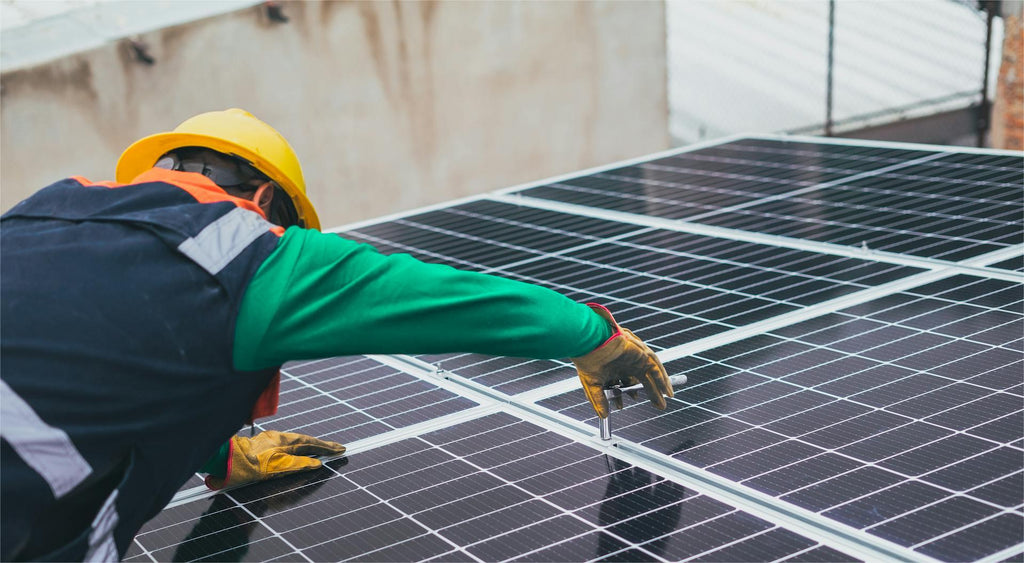Unlock the Secrets to Making Your Solar Inverters Last Longer!
Solar inverters play a pivotal role in solar energy systems by converting direct current (DC) generated by solar panels into alternating current (AC) that can be used in homes and businesses. Their importance cannot be overstated, as they are essential for the efficient functioning of solar energy systems. However, like any other electronic device, inverters have a lifespan, and ensuring their longevity is crucial for maximizing the return on investment. A well-maintained inverter not only enhances energy efficiency but also supports sustainability by reducing the frequency of replacements. In this article, we will explore 10 crucial tips for solar inverter longevity, helping you get the most out of your solar energy system.

1. Regular Maintenance Checks
One of the most effective ways to enhance the longevity of your solar inverter is by scheduling regular maintenance checks. These routine inspections can help identify potential issues before they escalate into costly repairs or replacements. During these checks, a qualified technician should examine connections, clean dust and debris, and check the inverter's overall functionality. A friend of mine who owns a solar energy company often emphasizes that a simple yearly inspection can prevent unexpected breakdowns and prolong the inverter's life significantly.
2. Proper Installation
The installation of a solar inverter is a critical step that can affect its performance and lifespan. Engaging qualified professionals for the installation ensures that everything is set up correctly. Common installation mistakes, such as incorrect wiring or poor placement, can lead to inefficiencies and damage over time. By investing in skilled technicians, you can avoid these pitfalls and ensure your inverter operates optimally from the start.
3. Ensure Adequate Ventilation
Proper ventilation is essential for preventing overheating, which can lead to malfunctions and shorten the inverter's lifespan. To ensure sufficient airflow around the inverter, it should be installed in a shaded, cool area with adequate space for air circulation. If you're retrofitting an existing installation, consider removing any obstructions around the inverter or adding ventilation fans to enhance air movement. This simple adjustment can significantly impact the inverter's performance.
4. Protect from Environmental Factors
Environmental factors such as extreme temperatures, humidity, and dust can adversely affect inverter performance. For instance, in areas with high humidity, moisture can lead to corrosion, while excessive dust can clog ventilation openings. To mitigate these risks, consider installing protective covers or enclosures designed for outdoor use. Additionally, placing the inverter in a sheltered location can shield it from harsh weather conditions, ensuring it remains functional for years.
5. Monitor Performance Regularly
Regularly monitoring your inverter's performance is essential for catching any issues early. Many modern inverters come equipped with monitoring tools and software that allow you to track metrics such as energy output, efficiency, and operational status. By keeping an eye on these indicators, you can quickly identify anomalies that may suggest underlying problems. A neighbor of mine who diligently monitors his system caught a minor issue early, saving him from a potential costly repair down the line.
6. Use Quality Components
Choosing high-quality components for your solar energy system is crucial for enhancing inverter longevity. Subpar materials can lead to faster wear and tear, ultimately affecting the inverter's performance. When selecting components such as cables, connectors, and batteries, always opt for reputable suppliers and ensure they meet industry standards. This upfront investment can pay off significantly by reducing the likelihood of future repairs.
7. Check System Configuration
Ensuring that your solar system is configured correctly to match your inverter’s specifications can prevent unnecessary strain and prolong its lifespan. This includes verifying the voltage and current ratings of your solar panels and batteries to ensure compatibility. If you're unsure about the settings, consulting with a professional can help optimize your system's performance, reducing the risk of damaging the inverter.
8. Manage Battery Usage
Battery management plays a vital role in the longevity of solar inverters. Overcharging or completely depleting batteries can put undue stress on the inverter, leading to premature failure. To optimize battery usage, consider implementing a routine charging schedule, and avoid using the batteries to their full capacity regularly. This practice not only extends the life of the inverter but also enhances the overall efficiency of your solar energy system.
9. Keep Software Updated
Modern solar inverters often come equipped with software that can be updated to improve functionality and performance. Regularly checking for and installing updates is vital as they may include enhancements, fixes, and new features that can boost the inverter’s efficiency. A timely software update could mean the difference between an inverter that functions optimally and one that faces unnecessary issues.
10. Seek Professional Assistance When Needed
Knowing when to seek professional help for troubleshooting and repairs is crucial for extending the life of your solar inverter. If you notice unusual performance issues or error messages, don’t hesitate to contact a qualified technician. Attempting to fix complex problems without proper knowledge can lead to further damage, ultimately resulting in more costly repairs. Proactive service can save you time and money in the long run.
Maximizing Your Solar Inverter's Lifespan
In summary, the longevity and efficiency of solar inverters are paramount for the overall success of solar energy systems. By implementing these 10 crucial tips—ranging from regular maintenance checks to seeking professional assistance—you can significantly enhance the lifespan of your inverter. This proactive approach not only ensures a more sustainable energy solution but also maximizes your investment in solar technology. Embrace these strategies to enjoy a reliable and efficient solar energy system for years to come.














